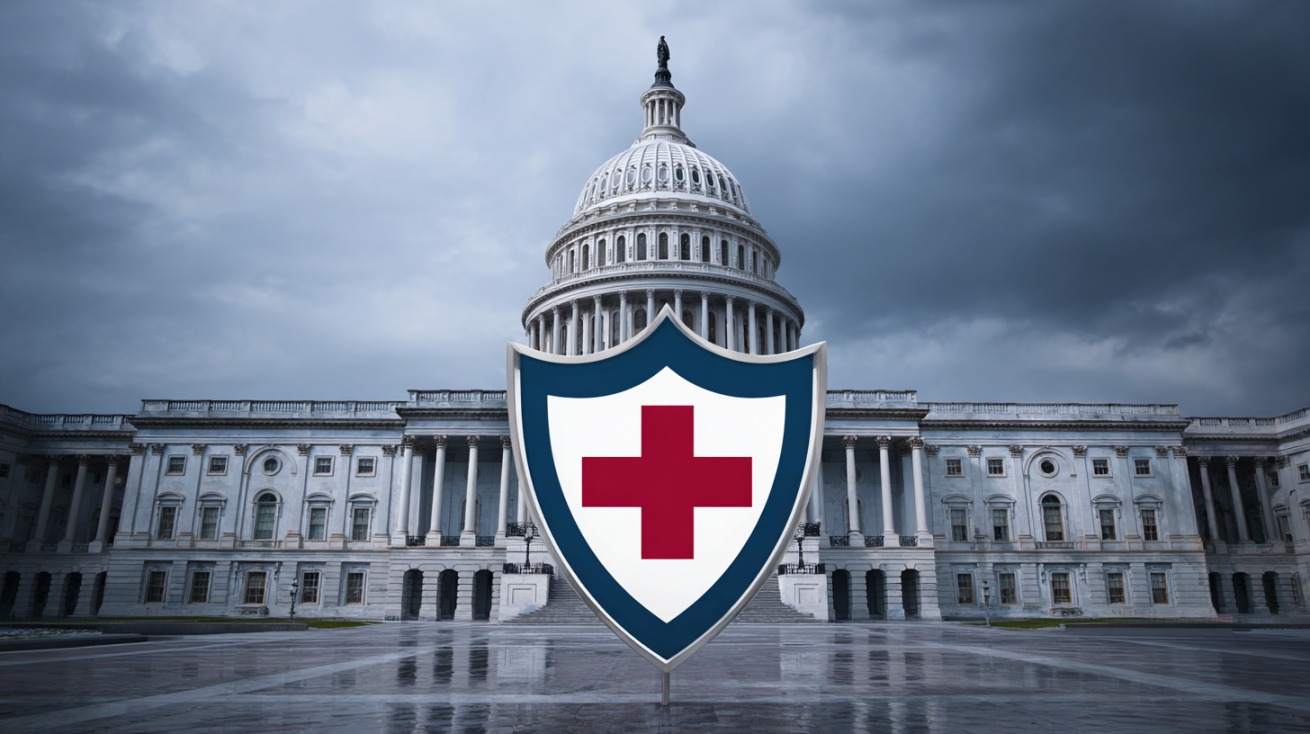Rising healthcare costs have created immense pressure on patients across the United States.
Unexpected hospital bills, errors in medical coding, and aggressive collection tactics often turn routine treatments into long-term financial burdens.
Millions of Americans each year receive statements filled with confusing or incorrect charges, often without any explanation or legal clarity.
Patients often feel powerless, yet laws now exist to protect them from predatory practices.
Federal and state regulations, such as the No Surprises Act and initiatives by the Consumer Financial Protection Bureau (CFPB), are reshaping how healthcare billing works.
Without further ado, let’s begin.
A Federal Shield Against Surprise Medical Bills

Patients have long struggled with unexpected hospital invoices that appear weeks or months after treatment. These surprise bills can result in financial distress, credit damage, or even bankruptcy.
The No Surprises Act, introduced in December 2020 and fully enforced beginning January 1, 2022, marked a turning point in protecting consumers.
It ensures that patients are not blindsided by out-of-network charges when they have little or no control over who provides their care.
Before the law’s passage, many individuals received bills amounting to thousands of dollars after emergency procedures, simply because certain specialists or facilities were not covered under their insurance plans. T
he law now prevents such practices by enforcing strict transparency rules and limiting how much out-of-network providers can charge for emergency and in-network facility services.
Federal oversight ensures that patients are charged fairly and understand what they are paying for, without being exploited during vulnerable moments.
Key protections under the Act guarantee fair treatment, as listed below.
Key Protections
Several major provisions within the No Surprises Act ensure fairness and accountability across healthcare billing systems. Each measure directly addresses common sources of financial exploitation in medical care.
- Emergency Services: Bills must reflect in-network rates, even when patients are treated by out-of-network providers during emergencies.
- Non-Emergency Services at In-Network Facilities: Patients cannot be balance billed when receiving care from out-of-network providers at in-network hospitals or clinics.
- Air Ambulance Protections: Air ambulance services are required to charge no more than in-network rates, preventing excessive, unexpected bills.
- Notice and Consent Requirement: Providers must give written notice and obtain consent before charging out-of-network rates for non-emergency situations.
- Independent Dispute Resolution: A neutral resolution system is available for patients and insurers to challenge unfair or inaccurate bills.
Together, these protections strengthen patient rights and prevent healthcare providers from bypassing insurance safeguards.

Exclusions and State-Level Supplements
While the No Surprises Act offers broad protection, certain gaps remain.
Some services fall outside federal regulation, allowing potential overcharging to continue.
Ground ambulance services, for instance, remain exempt under federal law, meaning providers can bill patients at unrestricted rates.
Many states have stepped in to close these gaps.
California serves as a prominent example with Assembly Bill 716 (AB 716), which sets limits on ambulance billing and restricts harsh debt collection practices.
Other states, including New York, Texas, and Illinois, are adopting similar reforms to ensure patients receive consistent protection nationwide.
Patients should check local regulations, as state-level laws can expand or clarify federal rights. Ground ambulance coverage, billing dispute processes, and debt collection timelines often vary depending on regional legislation.
Steps to Fight Medical Bill Overcharges

Billing disputes have become increasingly common, yet resources now exist to help patients challenge unfair charges effectively.
Several organizations offer detailed strategies for confronting healthcare billing errors and improving transparency.
Disputing Charges and Demanding Transparency
Every dispute should begin with documentation.
Patients should always request an itemized bill with all billing codes and, when applicable, a copy of the provider’s contract.
If a contract does not exist, the patient is not legally required to pay for unagreed services.
Price comparison tools can also strengthen negotiations.
- Hospital Price Files Finder
- Healthcare Bluebook
- ClearHealthCosts
Using these tools provides a benchmark for fair pricing and helps expose inflated or hidden fees.
Addressing Out-of-Network and Unnecessary Charges
Patients should remain cautious about additional fees labeled as out-of-network or non-essential.
Some hospitals hire specialists not included in a patient’s insurance plan, causing unintentional balance billing.
- Confirm provider network status in writing.
- Request all potential charges upfront.
- Refuse to pay for services misrepresented or not medically necessary.
- Awareness during admission and discharge is critical to avoiding inflated bills.

Navigating Insurance
Insurance companies can sometimes delay or deny claims due to clerical issues.
Every patient should carefully examine the Explanation of Benefits (EOB) to ensure accuracy.
- Contact the insurance company directly to clarify discrepancies.
- Submit a written appeal for denied claims.
- Seek support through the National Association of Insurance Commissioners (NAIC) or the state insurance department.
If you’re navigating private insurance systems in Germany, Audelio offers expert, independent advice to help optimize your plan, reduce premiums, and understand complex billing or coverage terms.
Following these steps ensures that patients are heard and that legitimate claims are processed promptly.
Escalating the Dispute
If normal communication channels fail, escalation to higher levels of authority can be effective.
Direct contact with hospital executives or board members often results in faster resolution.
- Reference federal price transparency laws in correspondence.
- Keep detailed records of all communications and dates.
- Insist on compliance with public pricing disclosure regulations.
Persistent advocacy can transform a slow-moving dispute into a resolved case.
Your Rights Under the Consumer Financial Protection Bureau (CFPB)

Financial accountability in healthcare extends far beyond hospitals and insurance companies.
Oversight by the Consumer Financial Protection Bureau (CFPB) ensures patients have access to accurate billing, transparent debt management, and fair treatment when dealing with medical collectors.
Before paying any medical bill or responding to a collector, patients should understand their legal protections.
Medical Billing Accuracy
Transparency is a legal requirement, not a favor.
Every patient has the right to request a detailed, itemized bill showing all charges, dates, and billing codes.
Providers must also offer a plain-language explanation of the services billed.
- Reviewing itemized bills for duplicate or unexplained charges.
- Comparing listed services to the actual care received.
- Requesting correction of any coding errors that inflate costs.
Small discrepancies often result in large overcharges, so taking time to verify each item can prevent unnecessary financial strain.
Dealing with Debt Collectors
Medical debt can quickly transfer to third-party collection agencies, but patients are protected under the Fair Debt Collection Practices Act (FDCPA).
The law prohibits collectors from using harassment or deception to obtain payment. Patients can demand debt verification before making any payment or arrangement.
- Collectors cannot call repeatedly or use threatening language.
- Verification must include documentation proving the debt’s validity.
- Payments should never be made until verification is received.
Understanding and asserting these rights helps patients avoid being manipulated into paying debts they do not legally owe.
Credit Reporting Protections
Recent reforms have transformed how medical debts appear on credit reports, offering fairer treatment to patients.
New rules ensure that minor or resolved medical issues do not destroy creditworthiness.
- Creditors must attempt to collect directly before reporting any debt.
- Paid medical debts were removed from credit reports as of July 2022.
- Debts under $500 were eliminated from reports starting July 2023.
Such changes mean small or temporary billing issues no longer linger for years, improving financial stability for millions.
Financial Assistance Requirements
Hospitals, particularly nonprofit institutions, are obligated by federal tax law to offer financial assistance programs.
Patients experiencing hardship may qualify for reduced or forgiven balances.
- Asking for hospital financial aid applications before paying bills.
- Requesting information about eligibility thresholds based on income.
- Asking about zero-interest payment plans for remaining balances.
Proactively seeking this support can turn an overwhelming medical debt into a manageable expense, especially for families dealing with ongoing health challenges.
Avoiding Medical Debt Scams

Financial stress caused by medical bills often makes individuals easy targets for fraud.
Scammers promise quick fixes, such as credit restoration or debt forgiveness, in exchange for upfront payments.
These operations are almost always fraudulent.
- Never pay fees upfront for credit repair or debt elimination services.
- Check credentials and accreditation before signing agreements.
- Use non-profit credit counseling agencies certified by national associations.
Accredited organizations offer legitimate, often free, programs that help restructure debt, communicate with collectors, and protect credit health.
Consulting reputable agencies ensures guidance without exploitation.
Final Thoughts
Patients today have far greater protection than in previous years.
Federal acts like the No Surprises Act and enforcement by the CFPB have shifted power toward the individual.
Every patient can fight back against overcharging, balance billing, and abusive collection tactics by staying informed and organized.
Knowledge, documentation, and persistence remain the strongest defense against unjust medical costs.
Read More: Just as patients deserve fairness and transparency in healthcare, workers also rely on laws like the Paycheck Fairness Act to ensure equity and accountability in their workplaces.

